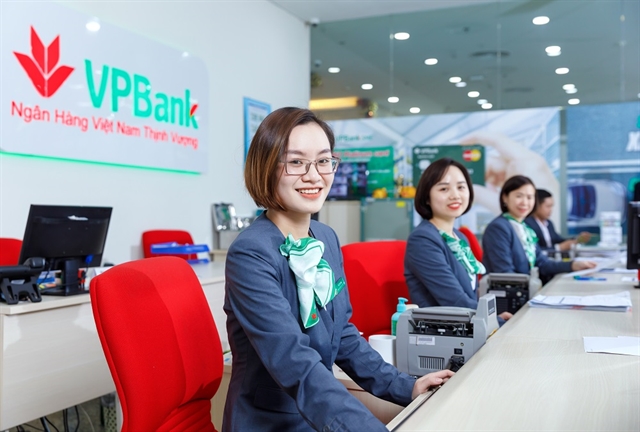Global credit rating firm Moody’s Investors Services has maintained Việt Nam Prosperity Bank (VPBank)’s long-term domestic and foreign currency deposits at B1 while raising its outlook from “stable” to “positive”.

Global credit rating firm Moody’s Investors Services has maintained Viet Nam Prosperity Bank (VPBank)’s long-term domestic and foreign currency deposits at B1 while raising its outlook from “stable” to “positive”.
This upgrade showed that Moody's believes in the bank’s ability to flexibly adjust its growth strategy as well as continuously improve risk management system amid the complicated COVID-19 pandemic situation. Moody's also highly appreciated VPBank’s credit growth, good profit performance and capital potential in 2020.
In addition, good business growth results along with having the most advanced risk management system have helped VPBank “score up” in the eyes of prestigious rating agencies in the world. The bank's brand value has increased 37 places, reaching US$502 million, and listed in the top 250 of the world's largest banks in 2020.
By the end of 2020, VPBank's consolidated credit growth increased 19 per cent compared to the previous year, of which individual banks reached 21.8 per cent, much higher than the industry average of 12.13 per cent. Non-performing loans (NPLs) have been kept under control, with the consolidation rate (according to Circular 02) remaining below 3 per cent.
The bank’s total operating income (TOI) in 2020 reached more than VND39 trillion, posting 7.4 per cent year-on-year increase and maintaining its position in terms of revenue among joint stock banks. Its consolidated pre-tax profit in 2020 reached more than VND13 trillion, fulfilling 127.5 per cent of the plan set out at the beginning of the year, up 26.1 per cent compared to 2019. Of which, profit at individual banks contributed 71 per cent to consolidated profit. Return on equity (ROE) and return on total assets (ROA) were still among the top performers in the market, at 22 per cent and 2.6 per cent, respectively.
The bank's capital adequacy ratio (CAR) was nearly 12 per cent according to Basel II standards, 8 per cent higher than the minimum required level. The cost control combined with digitalisation have helped reduce the consolidated operating cost by 7.7 per cent compared to 2019. The cost-to-income (CIR) ratio dropped sharply to 29.2 per cent in 2020 compared to 33.9 per cent at the end of 2019, the lowest level among commercial banks in Viet Nam.
With a well-established risk management system and updated continuously to adapt to each period, VPBank was awarded by The Asian Banker magazine for The Achievement in Liquidity Risk Management, bringing the bank to par with the leading credit institutions in Asia in the field of risk management for the first time.
The Asian Banker assessed that VPBank's liquidity risk management system works effectively and ensures safety for the bank, helps the balance sheet structure stay healthy, monitor liquidity risks and diversify capital mobilisation in the market. VPBank also completed Basel II nearly a year earlier than the State Bank of Viet Nam's requirements. It has gradually implemented its goal of approaching more comprehensive international risk management standards.
VPBank was also voted by the HCM Stock Exchange (HOSE) as the Top 20 companies with stocks in the list of the highest Viet Nam Sustainability Index (VNSI) in the market. — VNS





